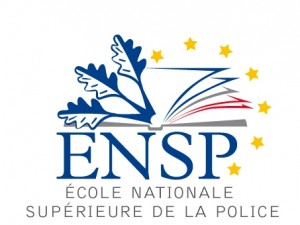Founded in 2010, AriadNEXT provides innovative solutions for secure customer enrollment management based either on a dedicated terminal or on smart embedded devices. The main benefits of AriadNEXT solutions are paperless, simpler and cheaper customer enrollment and a dramatic reduction of subscription fraud. Current AriadNEXT R&D projects focus, on the one hand, on developing robust ID data extraction and verification algorithms, and, on the other hand, on building an exhaustive and flexible ID knowledge database.
IRISA (CNRS UMR 6074) partner gathers researchers from two research teams: LIS and LinkMEDIA (previously TexMex). The LIS team develops information systems that support navigation, querying, update, and mining of heterogeneous datasets. It has an expertise in Semantic Web standards (RDF(S), OWL, SPARQL), automated reasoning, user-centered information access, and data mining. Its specificity can be summarized as trying to bring domain experts closer to their data by reconciling expressive querying or mining, and direct navigation into data. The LinkMEDIA team focuses on making use of extremely large collections of multimedia documents, with a special emphasis on working with videos and still images as well as on the security of multimedia contents. The key expertise relies on managing descriptors which are compact (reducing memory footprint) while remaining discriminant. The scientific activities of the group are grounded on computer vision, signal and image processing, high dimensional indexing and databases.
The French National Police College (Ecole Nationale Supérieure de la Police – ENSP) is placed under the direct authority of the General Director of the French police. It is mainly in charge of professional training for senior police officers (12,000) and top police managers. It is also involved in international training cooperation programs (CEPOL/FRONTEX/INTERPOL), and in police research and science. In order to ensure the excellence of these missions, it is based on scientific research and operational academic vocation. In this context, it provides the interface between research teams and members in the directions of the national police and keeps an eye on innovation. Partnership in this project fits perfectly into its concerns about the impact of technological developments in the field of public and private security. ENSP will organize several seminars during the project in order to present project findings. IDFRAud results will also be integrated into the teaching and training program at ENSP, including technical training on the result products and scientific presentation of the project outlines and methods.
L’Institut de Recherche Criminelle de la Gendarmerie Nationale (IRCGN) is the central laboratory of legal expertise of French Gendarmerie. One of its twelve departments is the Documents department. It includes the expertise unit in document fraud which is dedicated to secure identity documents. This unit is in charge of the expertise on litigious documents discovered in the course of legal investigations or administrative procedures and delivers reports within procedures. It has a reference collection and has access to technical data on the production of a whole range of secured documents worldwide. Besides, the laboratory has an equipment specifically dedicated to examining documents, in particular, video-spectral comparators. Moreover, the Documents Department is in charge of training and assisting Gendarmerie investigators specially trained for fighting against document fraud. It is also involved in the conception of French secured identity documents. The department has been collaborating with the University of Lausanne on identity profiling research. The participation of IRCGN in IDFRAud will be of great importance for any future utilization of IDFRAud products. Its experience in ID fraud techniques and in ID profiling will help in the early validation of proposed scientific and technical solutions. In addition, they will provide a formal and secure access to some knowledge and analysis of daily collected fraud ID, which will offer a realistic working base to academic and technical partners.


